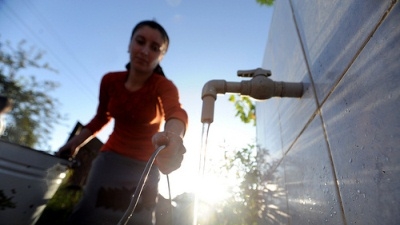The 2004 World Development Report (WDR), Making Services Work for Poor People, is recognised as groundbreaking in its appraisal of accountability relationships and performance for service delivery. Ten years on, what have we learnt about the science and politics of service delivery – and what are the emerging issues that will shape future priorities?
The Overseas Development Institute (ODI) and the World Bank (with support from the UK Department for International Development) have joined efforts to co-host an anniversary conference in Washington DC on the 28th February and 1st March 2014. As issues of accessibility and quality of basic services have become key priorities in the post 2015 development landscape, this is an opportune moment to discuss new developments since the WDR original publication, and to reflect on data, trends and experience in different service delivery sectors.
Much of the WDR’s core analysis on the centrality of accountability relationships for service delivery continues to be borne out by research and practice, although emerging themes in the international development landscape highlight some tensions too. Working closely with the original WDR team, and other key stakeholders, this event will provide an opportunity to share a growing body of research and practice and to revisit the core ideas and analysis of WDR 2004. The main themes of the conference are:
- The politics of delivery:What is the relationship between politics in health, education or other sectors and broader institutional reform processes? Can progress be made by addressing the ‘local’ politics of service delivery, such as the incentives of local politicians, the effects of decentralisation and the way resources are use?
- Information and data: under what conditions does transparency lead to greater accountability? What is the potential of ICTs to support users’ voice and agency?
- Behaviour change: How do insights from behavioural economics, such as the ‘nudge’ effect, shape our understanding of the motivations and incentives for improving service delivery?
- Financing service delivery: Do current public financing models support sustainable service delivery and institutional reform? Does aid hinder or help? Are there better ways of financing future service provision and what is the role of the private sector
- Service delivery in fragile states: What’s different and what’s the same for fragile states? What have we learnt about how to deliver services and the interaction with state-building and peace-building processes?
These themes will be discussed with reference to experience from different regions (i.e. Africa, Middle East, Latin America, South Asia, South East Asia/Pacific), drawing on a range of evidence, from rigorous evaluation, longitudinal research and other research based reviews to practical experience. Following the conference, we will make available recordings of and reflections on the presentations and discussion, as well as a series of interviews with key speakers, and a policy paper laying out an agenda for service delivery in the next 10 years.
Following the conference, we will make available recordings of presentations and discussions, as well as relevant papers and a series of interviews with key speakers. The main output will be a policy paper laying out an agenda for service delivery in the next 10 years.


